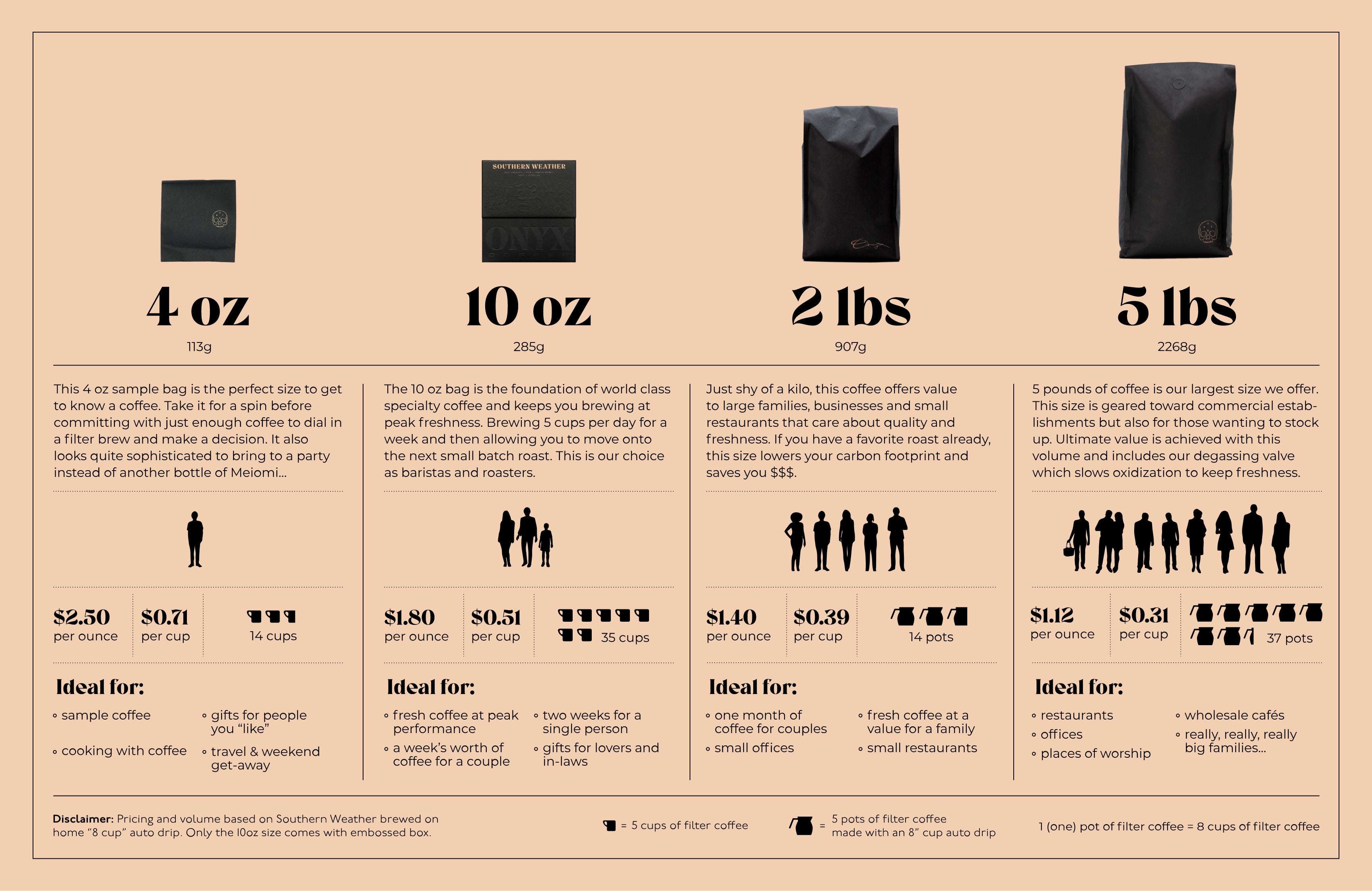Story
La Palma y El Tucán. The name has become synonymous with high-quality competition-grade coffees, but for our green buyer, it means another thing: home. Dakota spent three months living in one of the nine cabins built on the grounds of La Palma y El Tucán, working alongside the team there to facilitate a coffee experience unlike any other for guests visiting the farm. During his time there, he experienced their dedication to quality and the constant innovation taking place in all aspects of the farm. The guidance and teaching from each of La Palma's staff members were integral to leading Dakota to the Onyx team, who has had a relationship with La Palma y El Tucán since early 2013.
Felipe and Elisa started La Palma y El Tucán with the vision to produce small, perfect quantities of some of the world’s favorite coffee varieties. The farm has a unique layout with each variety planted in an artful way that encourages exceptional production and is also beautiful. The coffee is picked as it ripens by a team of women whose job is to make pass after pass, day after day, to choose only the best cherries. La Palma’s small wet mill is designed to showcase how fermentation can encourage coffees to show flavors you could only dream. Their dedication to quality is rivaled by their desire to change the future of production in Colombia - to create new ways for producers to approach farming, processing, marketing. This, in turn, could create incredible change for generational coffee producers in Colombia and many more to come.
Jon, co-owner of Onyx and coffee buyer, first met Felipe and Elisa when sourcing in Colombia in 2013. This first meeting turned into an article for Fresh Cup Magazine. Onyx was one of the first coffee roasters to buy coffee from La Palma. Since then they have become more than partners in coffee, but have genuinely become friends. Felipe and Elisa's dedication to their craft is truly inspiring. It is clear that they care deeply about the future of coffee production in Colombia. Everything they do is based on creating jobs for people in their communities, offering an opportunity to neighboring producers, and encouraging coffee as a viable, sustainable way of life.
SIDRA VARIETY
Sidra is a new hybrid coffee variety, made from Bourbon and Typica, and it melds the characteristics of these two varieties. It has acquired the dense sugars and weight of a Red Bourbon and the acidity of Typica. At the farm, you can distinguish them by seeing strong, confident looking trees with dark green leaves and tight nodes of cherries. The cup quality is that of crisp pear and apples. Fresh green acidity like malic acid is the star of the show for us. Think of the tart refreshing characteristics of white wines and Granny Smith apples. It also yields itself to floral honeysuckle-like qualities and seems to have large amounts of phosphoric acid, which results in juicy, mouthwatering tactile sensations.
NATURALLY PROCESSED COFFEE
Natural coffees are beautiful…Okay, natural coffees are beautiful when done properly and are pretty much the worst thing ever when not. Natural processing or dry processing refers to the act of drying and fermenting coffee inside the cherry. After the coffee cherries are picked from the tree they are placed on perforated drying beds to allow airflow all around the cherry. They are dried in the sun until they have 12% moisture content or so and then hulled to remove the dry husk of the fruit. Naturally (get it?), they exhibit fruit-forward characteristics and have a good chance of tasting “fermenty,” which is usually a taboo in Specialty Coffee. However, with an advanced technique in picking and drying, high-quality naturals are being produced, and the cup quality and taste profiles are astoundingly good. We have long promoted alternative processing methods, and naturals are at the top of that list. This La Palma Natural Sidra is one of those reasons we do.



